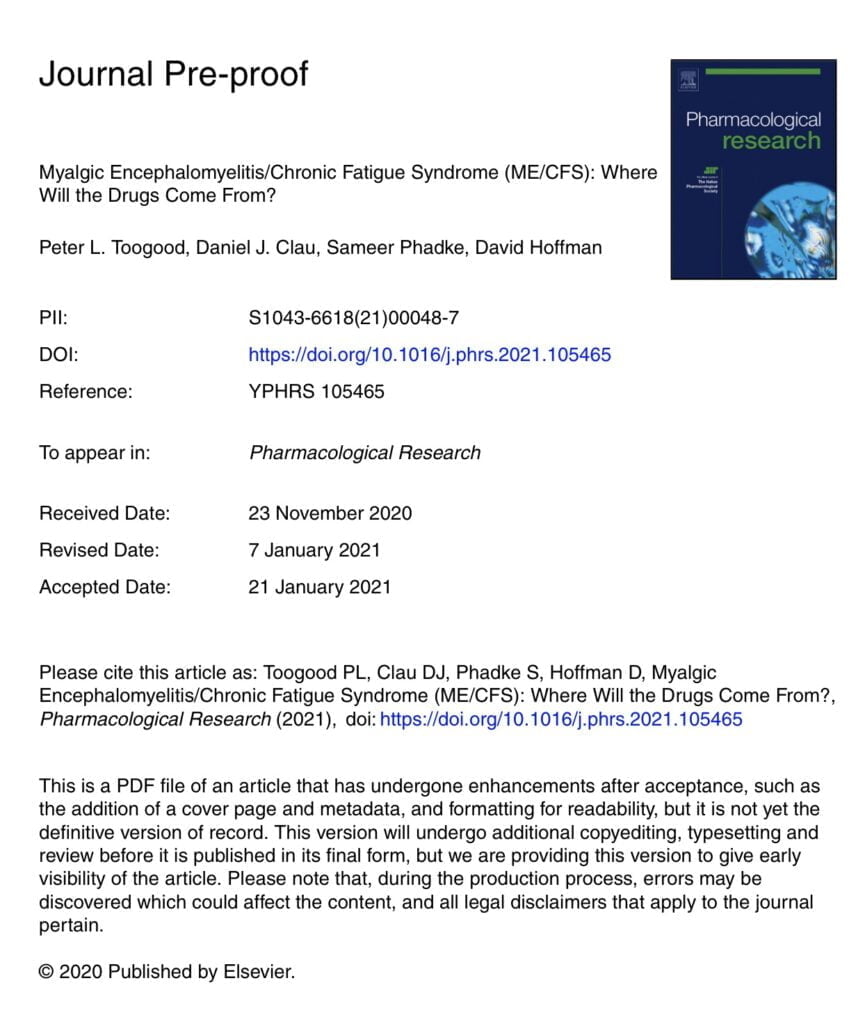John Mac
Senior Member (Voting Rights)
Abstract
Myalgic encephalomyelitis/chronic fatigue syndrome (ME/CFS) is a chronic debilitating disease characterized by severe and disabling fatigue that fails to improve with rest; it is commonly accompanied by multifocal pain, as well as sleep disruption, and cognitive dysfunction.
Even mild exertion can exacerbate symptoms.
The prevalence of ME/CFS in the U.S. is estimated to be 0.5-1.5% and is higher among females.
Viral infection is an established trigger for the onset of ME/CFS symptoms, raising the possibility of an increase in ME/CFS prevalence resulting from the ongoing COVID-19 pandemic.
Current treatments are largely palliative and limited to alleviating symptoms and addressing the psychological sequelae associated with long-term disability.
While ME/CFS is characterized by broad heterogeneity, common features include immune dysregulation and mitochondrial dysfunction.
However, the underlying mechanistic basis of the disease remains poorly understood. Herein, we review the current understanding, diagnosis and treatment of ME/CFS and summarize past clinical studies aimed at identifying effective therapies.
We describe the current status of mechanistic studies, including the identification of multiple targets for potential pharmacological intervention, and ongoing efforts towards the discovery of new medicines for ME/CFS treatment.

https://www.sciencedirect.com/science/article/pii/S1043661821000487

